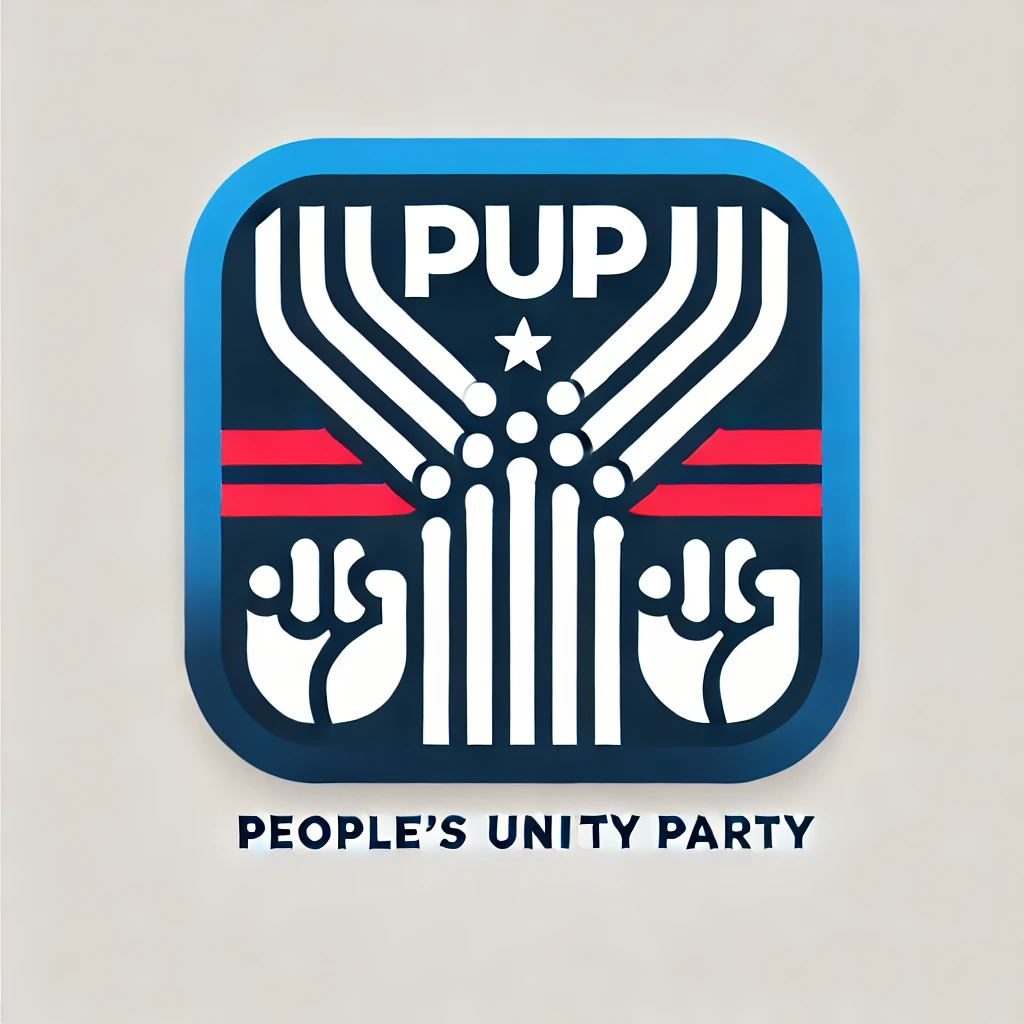


The People’s Unity Party (PUP)
The People’s Unity Party (PUP) is an independent movement focused on empowering hard-working middle-class Americans who have been overlooked by both major political parties. While starting as a wing of the Democratic Party due to its pro-worker stance, PUP remains independent in its mission to create policies that support unions, affordable education, fair wages, and transparency in government.
Powered by

The Affordable Housing and Homeownership Protection Act of [State Name]
Section 1: Short Title
This Act may be cited as the “Affordable Housing and Homeownership Protection Act of [State Name].”
Section 2: Purpose
To ensure housing affordability for all residents of [State Name] by increasing affordable housing supply, limiting corporate purchases of residential homes, stabilizing rental markets, and addressing homelessness.
Section 3: Definitions
1. Affordable Housing:
Housing units priced to ensure individuals earning up to 80% of the area median income (AMI) spend no more than 30% of their income on housing costs.
2. Corporate Purchases:
Purchases of residential properties by corporations, investment firms, or entities owning more than 25 residential units statewide.
3. First-Time Homebuyer:
An individual or family who has not owned a home in the past three years.
4. Vacant Property:
A residential property unoccupied for more than six consecutive months, excluding properties undergoing active rehabilitation or under contract for sale.
Section 4: Increasing Affordable Housing Supply
1. State Tax Credits and Grants:
• Allocate $1 billion annually for developers building affordable housing units, prioritizing areas with high housing demand.
• Require 15% of units in all state-subsidized housing projects to be designated as affordable housing.
2. Rehabilitation of Vacant Properties:
• Create a $500 million fund to rehabilitate abandoned or vacant properties for affordable housing use.
• Prioritize low-income families, first-time homebuyers, and veterans for these properties.
3. Local Government Incentives:
• Provide matching state funds to municipalities that pass zoning reforms encouraging affordable housing construction.
Section 5: Limiting Corporate Purchases of Residential Homes
1. Purchase Caps:
• Prohibit corporations from purchasing more than 10% of single-family homes in any municipality annually.
• Require corporations purchasing residential properties to designate at least 30% of units as affordable rentals.
2. Priority for Individual Buyers:
• Mandate a 60-day period for all residential homes listed for sale, during which only individuals, families, or non-profits may submit purchase offers.
3. Enforcement and Penalties:
• Impose a 10% tax on corporations violating purchase caps, with funds directed to the State Affordable Housing Trust Fund.
Section 6: Making Homeownership More Accessible
1. Down Payment Assistance:
• Establish a state grant program providing up to $15,000 for first-time homebuyers earning less than 120% of AMI.
2. Low-Interest Mortgages:
• Partner with local banks to offer low-interest mortgages (capped at 3%) for low- and middle-income buyers.
3. Property Tax Relief:
• Cap annual property tax increases at 2% for owner-occupied homes valued below the state median home price.
Section 7: Stabilizing the Rental Market
1. Rent Control Guidelines:
• Limit annual rent increases to the lesser of 5% or inflation in high-demand areas.
• Exempt properties built within the last 15 years to encourage new development.
2. Tenant Protections:
• Ban no-cause evictions and require a minimum 90-day notice for lease terminations.
• Establish a $50 million legal aid fund to assist tenants facing eviction.
Section 8: Addressing Homelessness
1. Housing First Program:
• Allocate $500 million annually to fund permanent supportive housing for individuals and families experiencing homelessness.
2. Emergency Housing Grants:
• Provide grants to municipalities for temporary shelters, transitional housing, and wraparound support services such as mental health care and job training.
Section 9: Funding and Revenue Sources
1. Luxury Housing Tax:
• Impose a 1% annual tax on residential properties valued above $2 million, with revenues directed to the State Affordable Housing Trust Fund.
2. Vacant Property Tax:
• Impose a tax on properties left vacant for more than six months, unless actively rehabilitated or under contract for sale.
3. Real Estate Transaction Fee:
• Introduce a 0.5% fee on corporate purchases of residential properties, allocated to affordable housing initiatives.
4. State General Funds:
• Supplement funding from the state budget to ensure program sustainability.
Section 10: Reporting and Transparency
1. Annual Report:
• The Department of Housing shall submit an annual report to the state legislature detailing the progress of affordable housing initiatives, corporate purchase enforcement, and homelessness reduction.
2. Public Dashboard:
• Create an online platform to track housing affordability metrics, state spending, and program outcomes for public transparency.
Section 11: Effective Date
This Act shall take effect on January 1, [Year], with full implementation by January 1, [Year+1].
Section 12: Severability
If any provision of this Act is found to be unconstitutional or invalid, the remaining provisions shall remain in effect.
Conclusion
The Affordable Housing and Homeownership Protection Act of [State Name] will ensure housing affordability, protect residents from corporate overreach, stabilize rental markets, and address homelessness. By prioritizing people over profits, this legislation creates a more equitable housing market for all.
Related Blogs
View All





